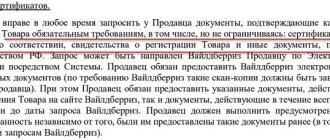Article 119 of the Criminal Code of the Russian Federation: What punishment is provided for the offender
The main article in the Criminal Code, which regulates situations with threats, is Art. 119 of the Criminal Code of the Russian Federation “Threat of murder or infliction of grievous bodily harm.” If the person exposed has reason to fear that the threat received will be realized, the offender may be sentenced to compulsory labor for a period of 480 hours, arrest for up to 6 months, or imprisonment for up to 2 years.
According to paragraph 2 of Art. 119 of the Criminal Code of the Russian Federation, if threats are based on political, ideological, racial, national and religious hatred or enmity, the punishment is increased by increasing the terms:
- forced labor - up to 5 years;
- imprisonment for up to 5 years.
The punishment is supplemented by deprivation of the right to hold certain positions for up to 3 years. The Criminal Code also contains other articles where threats act as an aggravating circumstance when committing crimes:
- according to Art. 161 of the Criminal Code of the Russian Federation, robbery with the threat of physical violence entails punishment in the form of forced labor for up to 5 years or imprisonment for up to 7 years with a fine of up to 10,000 rubles.
- according to Art. 162 of the Criminal Code of the Russian Federation, robbery, including using the threat of violence, is punishable by forced labor for up to 5 years, imprisonment for up to 8 years with a fine of up to 500,000 rubles.
- according to Art. 163 of the Criminal Code of the Russian Federation, extortion committed with the participation of the threat of violence is punishable by restriction of freedom for up to 4 years, arrest for up to 6 months, imprisonment for up to 4 years with a fine of 80,000 rubles.
Where to go if you are being harassed over the phone?
In order for a person’s statements to be considered offensive to the addressee, certain conditions must be met: the attacker’s desire to humiliate the victim, indecent form.
The following are considered insults:
- obscene and abusive phrases containing obscenities;
- comparisons with animals;
- unwanted touching;
- gestures with obscene connotations;
- movements that may result in the victim's clothing being torn off.
A statement regarding any of these facts must be submitted to the prosecutor's office. For insulting, attackers face a fine of up to 3 thousand rubles.
What to do if you are threatened
If a citizen has become a victim of threats of violence, the first thing to do is to record the threat and assess whether it has the possibility of being actually implemented. In case of filing a statement with the police under Art. 119 of the Criminal Code of the Russian Federation, the applicant will not have the opportunity to withdraw the application, since such cases are not of a private nature.
Note!
In the case of a threat, reconciliation is only possible according to the general rules of criminal law. This requires compensation for the harm caused and the accused having no criminal record.
The real possibility of carrying out a threat can be indicated by any means by which physical violence can be committed, and by the actions of the threat itself. This could be a demonstration of weapons, knives, or an attempt at strangulation or beating.
How to complain correctly
To choose which authorities to file a complaint with, it is necessary to assess the nature of the violation and check the provisions of the law. General control over collection activities is carried out by the FSSP.
Based on the results of inspections, bailiffs can:
- revoke the certificate and remove the agency from the register,
- initiate an administrative case,
- impose a significant fine on the collection agency.
There are other departments that are able to stop lawlessness on the part of collectors and protect the interests of citizens and creditors.
Where to file a complaint
Bailiffs accept complaints about any violations related to the work of collectors. The FSSP reports violations by agencies that are and are not on the register, too frequent letters, night calls, extortion and other illegal actions. A complaint can be submitted in person, by mail or online.
During the coronavirus pandemic, the FSSP organized the reception of documents through special boxes installed in front of the entrance to the building.
In addition, the debtor has the right to complain to the following departments:
- the prosecutor's office
is a supervisory body that considers appeals for any violations of the law. For example, file a complaint with the prosecutor if the bailiffs refused to check the work of the collectors; - financial ombudsman
- specialists of this service are authorized to resolve any disputes related to the financial obligations of citizens; - in the Ministry of Internal Affairs
- if the actions of debt collectors contain signs of a criminal offense; - to Roskomnadzor
- if the collection agency violates the rules of calls and sending SMS, posts the defaulter’s personal data on the Internet, informs colleagues and neighbors about the debt; - to the Central Bank of the Russian Federation
- if the violation was committed by a bank or microfinance organization.
Report the collector's actions to the head of the organization at the central office. It also helps to contact SRO NAPKA if the collection agency is part of it.
It is not prohibited to contact several departments at once. For example, if a collector calls, stands guard at the entrance, meetings are accompanied by threats, notify the police, file a complaint with the FSSP and NAPCA.
If you find it difficult to choose an authority to appeal, consult our lawyers.
How to prove intimidation
To prove in court the fact that threats could have been carried out, it is necessary to confirm the fact of the threat itself, to find evidence of the malicious intent of the threat and personal and real fears for his life on the part of the victim.
When considering the case, the following facts are taken into account:
- the identity of the accused;
- motives for the threat;
- form of threat;
- the circumstances under which the threat was made.
If the identity of the accused is known, you need to collect as much information about him as possible. These may be characteristics from work, neighbors, colleagues that confirm negative and aggressive behavior.
If threats have been received for some time, this fact needs to be recorded. If these were calls, you can record telephone conversations. Modern mobile phones have this feature. If you are calling your home phone, you can use a voice recorder.
If threats were received via SMS messages, email, or other means of communication, it is necessary to take screenshots of the correspondence and print them, as well as notarize them.
If the threats occurred in a personal meeting, the fact of the threat must be recorded either on audio media or on a video camera. A weighty argument in favor of the applicant will be the testimony of witnesses, if any.
If the identity of the threat is unknown, you can request a printout of calls from the telecom operator’s office. To prove malicious intent, evidence of physical intimidation must be provided. That is, if during the time the threats were received, someone scratched the car, damaged property, called relatives, left notes - this will be needed when filing an application.
What not to do
The reaction of a person who does not expect to hear a threat can be unpredictable. Many people are lost and don't know what to do. Law enforcement officials advise using the following rules:
- Under no circumstances should you conflict with an unknown interlocutor, threaten in response, etc. You should answer calmly, analyzing the information received.
- If emotions take over, then there is no need to continue the conversation.
- You should not immediately give your name to the attacker.
- It is not recommended to ignore such calls or SMS. You need to seek help immediately.
One of the main mistakes made by victims of such crimes is changing the SIM card. Unfortunately, this will not help get rid of calls. On the contrary, it can anger the attacker, and he will move on to more active actions.
How to write a statement regarding threats and intimidation and where to submit it
When all the evidence has been collected, you need to contact the police and report the threats. An application is drawn up for this purpose. The header of the document indicates the information where the applicant is applying and personal details. The main part of the statement must describe in detail the circumstances of the threat:
information about the threat (full name, address, contact details), date and place of the threat, testimony of witnesses, motives.
Note!
If the police officer accepted the citizen's statement, he will send a response within 10 days regarding further investigation.
A criminal case is initiated, during which detective work is underway. After this, the case is sent to court, and litigation begins. Both sides present evidence that they are right. If convicted, the accused faces up to 5 years in prison.
However, there are cases when the police may not accept a statement, considering that the evidence is insufficient. What to do then?
Action plan for threats by phone and SMS
Let's look at what to do if you are threatened over the phone.
No need to panic. It is better to record all evidence of a crime. If you receive threatening SMS messages, you can take screenshots to later present them to the police and court. If threatening calls continue, record at least one conversation on audio. You can use an app on your smartphone or a voice recorder.
Note!
In order for a criminal case to be initiated, SMS or conversation recordings must contain direct threats to life or demands to pay money in exchange for non-disclosure of some information.
Law enforcement agencies will assess the reality of the threats, examine the circumstances of the crime, the identity of the accused, and the relationship between him and the victim. To prove that you are really afraid of an attacker, take certificates of his criminal record, negative characteristics from neighbors, and from his place of work. This can be done if someone you know threatens you over the phone.
Threats from debt collectors
This also includes threats from debt collectors. In order to initiate a case, it is not necessary to go and submit an application - these cases do not have a separate character in the legal sense, but are initiated only upon discovery of the offense itself. In other words, every victim who wishes to bring his offender to justice does not have the right to subsequently “withdraw” his statement, as is possible in case of beatings under Article 116 of the Criminal Code.
Example 1. The collector Petrov I.S. and the debtor Makarov A.S. quarreled in the courtyard of the house, after which Makarov took Makarov by the throat and began to choke him. There were witnesses in the yard of the house who saw everything and called the police. The local police officer who arrived found out the circumstances and gave the matter a turn. Before this, collectors threatened the debtor by sending him SMS over the phone (but it is worth considering that it is almost impossible to hold him accountable for SMS messages alone).
Reality of threats
This is one of the main criteria by which qualifications are actually determined. There is also some nuance here - the main thing is that the victim perceives the ongoing intimidation as if the action could actually be carried out. Circumstances can help to understand how much the victim understood the seriousness of the statements.
The reality of intentions to cause harm may be indicated by:
the use of weapons and other objects that can be used to carry out reprisals. These can be brass knuckles, stun guns (often used by debt collectors), or simply household items. It is not necessary to use them - it is enough to demonstrate the objects in front of the victim and threaten; actions that confirm the words: beating, etc. Threats via SMS, what should I do? The existing article of threats via SMS, Article 163 of the Criminal Code of the Russian Federation, prescribes punishment for carrying out this type of threat. If debt collectors send SMS messages with threats, you should take this as seriously as possible and, if possible, write down these threats. If you receive insults via SMS, then liability for this is not provided for by law.
Example 2. During a conflict between a debtor and collectors, two men got into a verbal altercation, during which citizen V.V. Petrov said to Sidorov: “I would kill you debtor now, but I don’t want to sit.” Since this phrase was thrown during a quarrel, without touching citizen Sidorov, without using funds, the investigator refused to initiate a case under 119 of the Criminal Code (the reason is that there is no reason to consider the threat real, and just the SMS messages that collectors sent earlier in order to intimidate the debtor - obviously not enough).
As we can see, in the example it is impossible to argue about the danger for the male victim, although the applicant himself believes otherwise.
What threats will be covered by the law?
The essence of the threat, when the attacker promises to kill the victim, is immediately clear, but with physical violence the matter is more complicated, since not every act will be regarded as a serious form of harm.
In accordance with the law, serious injury means harm that entails serious or irreversible consequences for a person.
The most common serious injuries are:
- Loss of vision, speech, hearing.
- Loss of motor activity.
- Mental disorders.
- Loss of organs (parts of organs) or loss of their functions.
- Dependence on narcotic or psychotropic substances.
- Irreversible disfigurement of a person's body or face.
- Complete or partial loss of legal capacity or ability to work.
- Forced termination of pregnancy.
It is precisely such threats, expressed in any form, that can become the reason for initiating legal proceedings under Article 119 of the Criminal Code of Russia.









